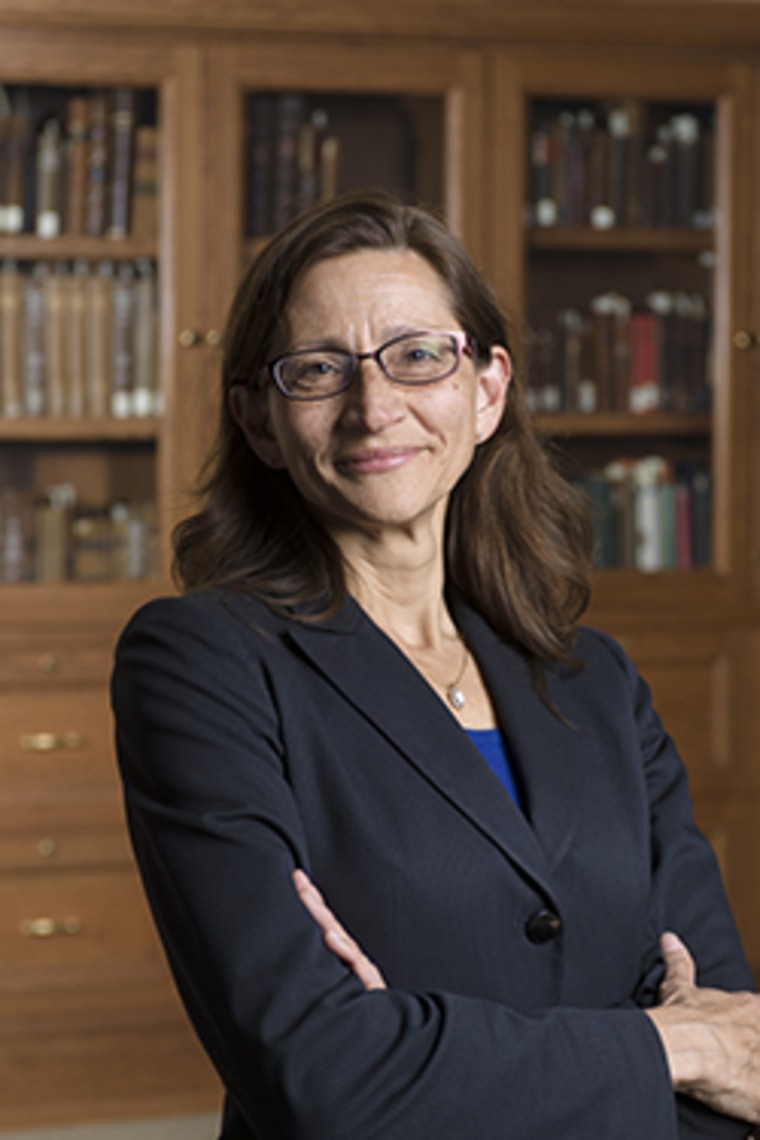NAME: Jennifer Rosato Perea
AGE: 53
HERITAGE: Nicaraguan and Italian American
HOMETOWN: Bethlehem, PA, currently resides in Chicago, IL
OCCUPATION/TITLE: Dean of the College of Law, DePaul University
Jennifer is a nationally recognized leader in legal education as well as an accomplished scholar in family law, bioethics and civil procedure. Jennifer was the first in her family to attend college and her legal career began with a passion for working with abused children. Today she is one of but a handful of Latina law school deans in the country.
What did you want to be when you grew up?
Even as a child I always knew I wanted to be educated because my parents were not, and they encouraged me. There was never a question that I was going to college. But I didn’t want to be a lawyer when I was a child, I wanted to be a doctor. I won a science award in high school and went to Cornell for pre-med, but I didn’t think medical school was for me. So I went into psychology and that morphed into social work and then I started to study a lot about structural inequity and the role of the law. I realized I could have much more of an impact as a lawyer.
How did you get yourself into Cornell?
It’s so different now – now we have really good guidance counselors helping students along the way but back when I went through the process… I feel like it was really haphazard. I was so lucky. I don’t remember anyone sitting me down and saying, “Here are your options and alternatives.” I think I applied to 3 colleges and I’m not sure how I got to Cornell, but I went to visit and they gave me a really nice scholarship for being Latina. I do remember my teachers were instrumental in encouraging me – my parents as well – but I felt like it was much more an accidental opportunity. I was really fortunate.
What was it like?
At that time there weren’t very many Latino or African American professors or centers for helping Latino students, you were just alone. I was used to being the lone Latino in the community because I grew up in a white steel town, but it was kind of a shock to be on a college campus of a private school with all these affluent people around me.
I got really discouraged and my parents came up to campus and sat with me in my dorm room and said, “You are not leaving this college. You have this great opportunity and you need to stay.” It was really one of the most important things they ever did for me.
"I don’t believe there is a better profession for being a community leader, a problem solver and do work that is going to have such great social impact. Also, bilingual lawyers are especially in demand."
How was law school?
I gravitated toward the social work aspect and teaching so even from my first year in law school I knew I wanted to be a law teacher. I graduated and practiced for a year but I really wanted to help students and be an educator. I kept at it and eventually I became a dean of students, then I went into administration and eventually became and acting dean, the permanent law school dean at Northern Illinois University and then DePaul. The journey helped me realize what I’m passionate about and good at. It kind of all makes sense when you look at it in hindsight.
Should Latinos pursue law careers?
I think it’s a very good time to become a lawyer for a number of reasons. We always need lawyers who are going to be hardworking and ethical and bring their passion to the community. Plus, we do not have a diverse enough profession. And I don’t believe there is a better profession for being a community leader, a problem solver and do work that is going to have such great social impact. Also, bilingual lawyers are especially in demand.
How can others follow in your footsteps?
We all wish we had a magical formula but it’s really about some basics, especially if you come from a different background. Do not to compare yourself to others, you have to be excellent by your own measure. If you start looking at who’s from where or what they have, it’s easy to psych yourself out and there’s always going to be someone with a richer background than you.
Work hard and do your best work always. For us as people of color, mediocrity is NOT an option. We still have to be more excellent and that is a truth.
Follow your passion – if you do something you love, you’ll do it better and be happier, too.
Never forget where you came from. There is such value in embracing those difficult memories – the humility, empathy and drive you gain from those experiences propels you toward success. I’m here because of all those experiences, not in spite of them, so I’m grateful. It makes me different and I’m very proud of that.
Esther J. Cepeda is a Chicago-based journalist and a nationally syndicated columnist for The Washington Post Writers Group. Follow her on Twitter, @estherjcepeda.
